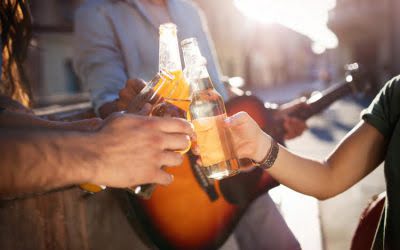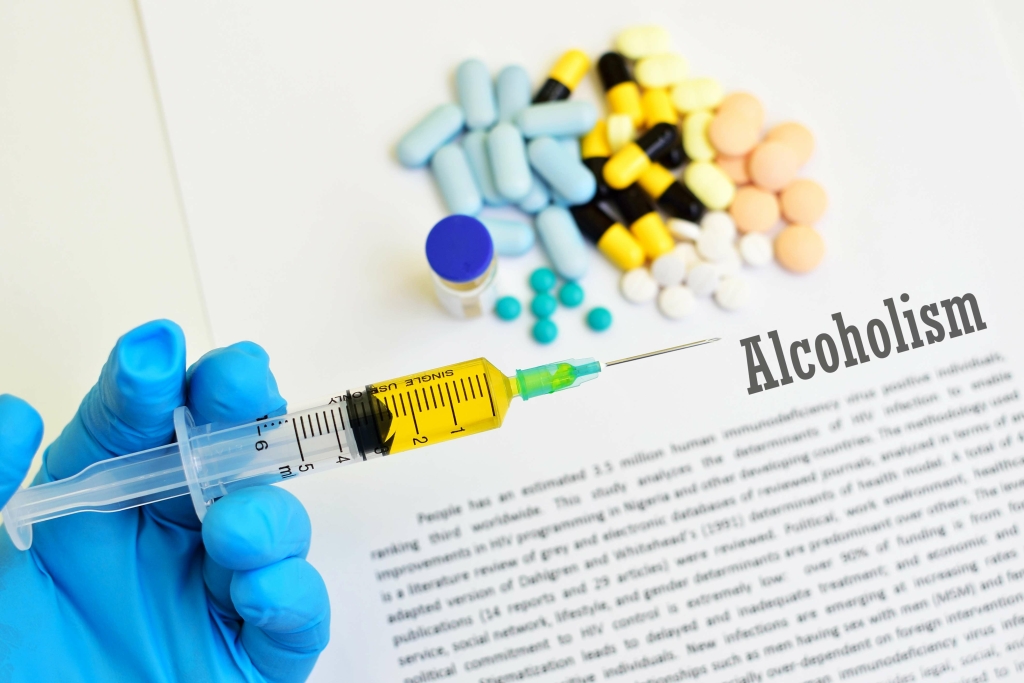It can disrupt neurotransmitter levels and increase feelings of depression and anxiety. When a person has an alcohol use disorder, their anxiety disorder can certainly be exacerbated or it can even lead to new anxiety symptoms being formed. The relationship can happen similarly by a pre-existing anxiety disorder contributing to a person’s alcohol use disorder. https://ecosoberhouse.com/ One of the main issues lies in individuals typically utilizing alcohol when they have anxiety as an extremely unhealthy coping mechanism. The longer an individual depends on alcohol to assist in treating their anxiety, the more at risk she becomes of developing a full-blown alcohol use disorder. Additionally, the longer she engages in this vicious cycle, the more likely anxiety symptoms will lurk.

Treatment options for alcohol use disorder
People with depression and anxiety might use alcohol to help ease symptoms, but excessive alcohol use can also worsen your mental health. Just as alcohol consumption causes a wide range of effects on the body and mind, so does the period of withdrawal. These effects contribute to day-after dread, even if you don’t have an anxiety disorder diagnosis.
Can alcohol cause anxiety for days?
If you have a history of anxiety or mental disorders, make sure to share this with your healthcare provider so you know how alcohol or other substances may affect you differently. Conversely, the three types of studies highlighted in this section indicate that if an association between alcoholism and anxiety/depressive disorders does exist, it is likely to operate in a relatively small subgroup of alcoholics. Several separate lines of evidence cast doubt on the possibility that high proportions of alcoholics have severe, long-term depressive or anxiety disorders. The effects of drinking too much can also seep into your daily life and may impact areas like work, finances, relationships and aspects of your physical health like sleep, diet, and exercise, says Dr. Anand. That could lead some people, for example, to turn to drinking to cope with stress caused by these issues. Analyses stratified by gender suggested that men who binge drank (on at least a monthly basis) had a threefold increased odds of anxiety and depression at followup compared with men who did not binge drink.
- A key challenge to applying a comparative perspective across disciplines and time is the use of unique and evolving terminology and definitions for similar phenomena.
- Alcohol abuse and comorbid depression are common – meaning they often occur simultaneously.
- Although alcohol makes you fall asleep faster, it interrupts your natural sleep-wake cycle (or circadian rhythm).
- They have lots of experience with people going through something similar and will be able to check your physical health and connect you with support services.
Major Depressive Disorder (MDD)
Naturally, dealing with these issues is going to increase your levels of stress. It’s not just the neurochemical changes that affect depression and anxiety, but the 360 effects of drinking too much. For example, with long-term inflammation your risk of developing a chronic condition like diabetes or heart disease increases. And managing a health condition creates an increased risk of depression and anxiety, too. The connection between alcohol and depression is complex and bidirectional. Drinking too much alcohol can bring on depressive symptoms, and people with depression often turn to alcohol to find relief.
The material cited is largely limited to seminal studies and other reviews. In addition, complex research on stress and neurobiology is discussed in ways sufficient to make particular points but without providing a comprehensive or in-depth description of the underlying work. Doing so is beyond the scope of this article, but the approach presented in this article runs the risk of oversimplifying complex topics and obscuring relevant details. Also, this review does not address potentially important individual differences, such as sex.
The temporary relief provided by alcohol is not worth the potential harm it causes. Instead, seeking appropriate mental health support and finding alternative coping methods are crucial steps toward recovery. However, the analysis also showed virtually no relationship between risk for alcohol dependence and the unique components of those diagnoses.
Drinking to cope with depression, no matter if you have an alcohol use disorder, is concerning. Alcohol misuse and depression are serious conditions that you shouldn’t ignore. If you think you have a problem with either, talk to your doctor or therapist. There are lots of choices when it comes to medication that treats depression, and there are drugs that lower alcohol cravings and counter the desire to drink heavily. You can also get help from Alcoholics Anonymous or an alcohol treatment center in your area.
This, combined with heightened mood states, can have some unpleasant effects. Since alcohol can cloud your brain, it can keep you from seeing helpful solutions to problems. Lower-than-normal levels of these important chemical messengers can temporarily affect your speech, coordination, and energy. Namely, it interferes with the release of neurotransmitters linked to mood regulation, including serotonin and norepinephrine. Sandra Lamb is a freelance science and health care journalist and author of books including How to Write It and Writing Well for Business Success. For reviews of studies not cited in the reference list, see Schuckit and Hesselbrock 1994.
Drinking can also cause does alcohol give you anxiety hangovers, which usually consist of symptoms like nausea, dizziness and headaches. Do you ever notice yourself feeling a little out of sorts the day after you drink? Don’t stop taking an antidepressant or other medicine so you can drink. For antidepressants to work as intended, you need to take them regularly to have a constant level in your system.
Alcohol use and depression symptoms

Sometimes, simply reducing or removing alcohol from your life can relieve depression symptoms and make you feel better. In some cases, people with depression cut out alcohol for just four weeks and noticed a clear difference in how they felt. In this article, we look at the different ways that drinking alcohol can make your depression symptoms worse. We’ll start by examining the effects of alcohol on your mind and body, then we’ll discuss the link between Sober living house alcohol and depression, including how it makes symptoms worse and how reducing alcohol can improve depression.
The Potential Link Between Alcohol and Mental Health Disorders

It is common for people to require separate treatment for depression and alcohol abuse. Despite the availability of several evidence-based medications and behavioral therapy approaches for treating co-occurring AUD and depressive disorders, improvements in treatment for this population are clearly needed. Consideration of disorder heterogeneity and key subgroup differences may help develop more targeted and personalized treatments to improve outcomes for this population. Many randomized trials have investigated treatments for co-occurring AUD and depressive disorders. In this section, trials that used medication and psychotherapy treatments are discussed, as are the effects of those treatments on depressive symptoms and AUD symptoms.